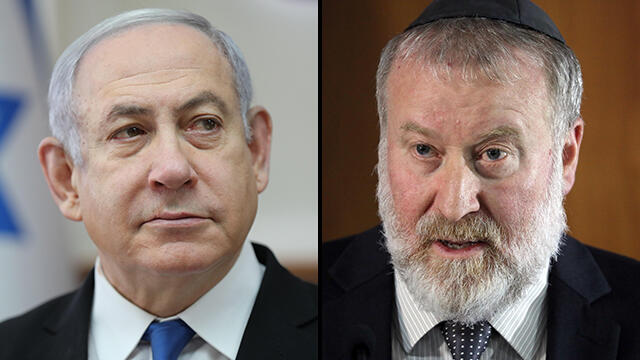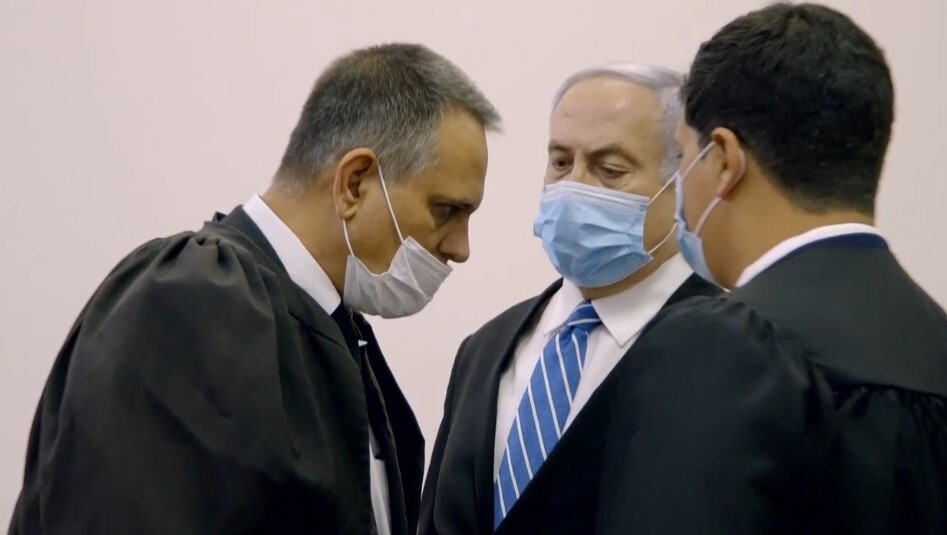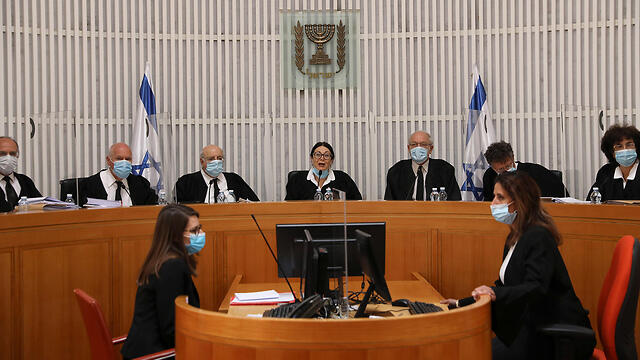Getting your Trinity Audio player ready...
Attorney General Avichai Mandelblit on Monday published a conflict of interest agreement meant to prevent Prime Minister Benjamin Netanyahu from using his position to affect his corruption trial.
Netanyahu is currently on trial for three other corruption affairs after being charged with fraud, breach of trust and accepting bribes. Netanyahu, whose trial begins evidentiary hearings in January, denies any wrongdoing.
3 View gallery


Prime Minister Benjamin Netanyahu and Attorney General Avichai Mandelblit
(Photo: EPA)
The attorney general's final legal opinion raises five issues, the most significant of which is a ban prohibiting the premier from making judicial appointments, including the police commissioner and state prosecutor.
Netanyahu is now banned from making decisions concerning appointments of high-ranking officials in the law enforcement system, decisions concerning the appointment of Supreme Court justices and Jerusalem District judges and making decisions concerning witnesses or other defendants in his case.
The premier is also prohibited from interfering with the work of the Communications Ministry, at least in a way that could impact his case, and from being involved in legislation that may have an impact on the criminal proceedings.
The agreement will allow Mandelblit to defend Netanyahu in the High Court of Justice against petitions demanding he abdicates the premiership.
Despite Netanyahu's opposition to some of the aspects of the agreement, the Justice Ministry officials believe the legal opinion will create a clear enough distinction between decisions that can affect his trial and decisions he usually makes by virtue of his position.
The agreement is the culmination of five months of deliberations between Netanyahu's attorneys and Mandelblit's team, during which the parties exchanged drafts and held meetings to discuss amendments to the agreement.
Ultimately, the parties had to expedite the negotiation process and reach an agreement on most issues after a petition to oust Netanyahu reached the High Court. The attorney general's opinion is binding, therefore, Netanyahu cannot contest the restrictions with which he does not agree.
3 View gallery


Netanyahu consulting his attorneys at the opening hearing of his corruption trial, May 2020
(Photo: Contact)
In several speeches in recent months, Mandelblit stressed that such an agreement is paramount for him to continue to defend the Likud chairman in the High Court.
Mandelblit will now be able to claim in court that the agreement will prevent Netanyahu from using state resources in order to promote issues that will affect his legal situation, whether directly or indirectly.
Three months ago, the prime minister rejected a draft of the agreement that the attorney general handed over to him, claiming that Mandelblit had no authority to set these conditions since the latter was the one who filed the indictments against him and therefore was himself in a conflict of interest.
Associated Press contributed to this report


